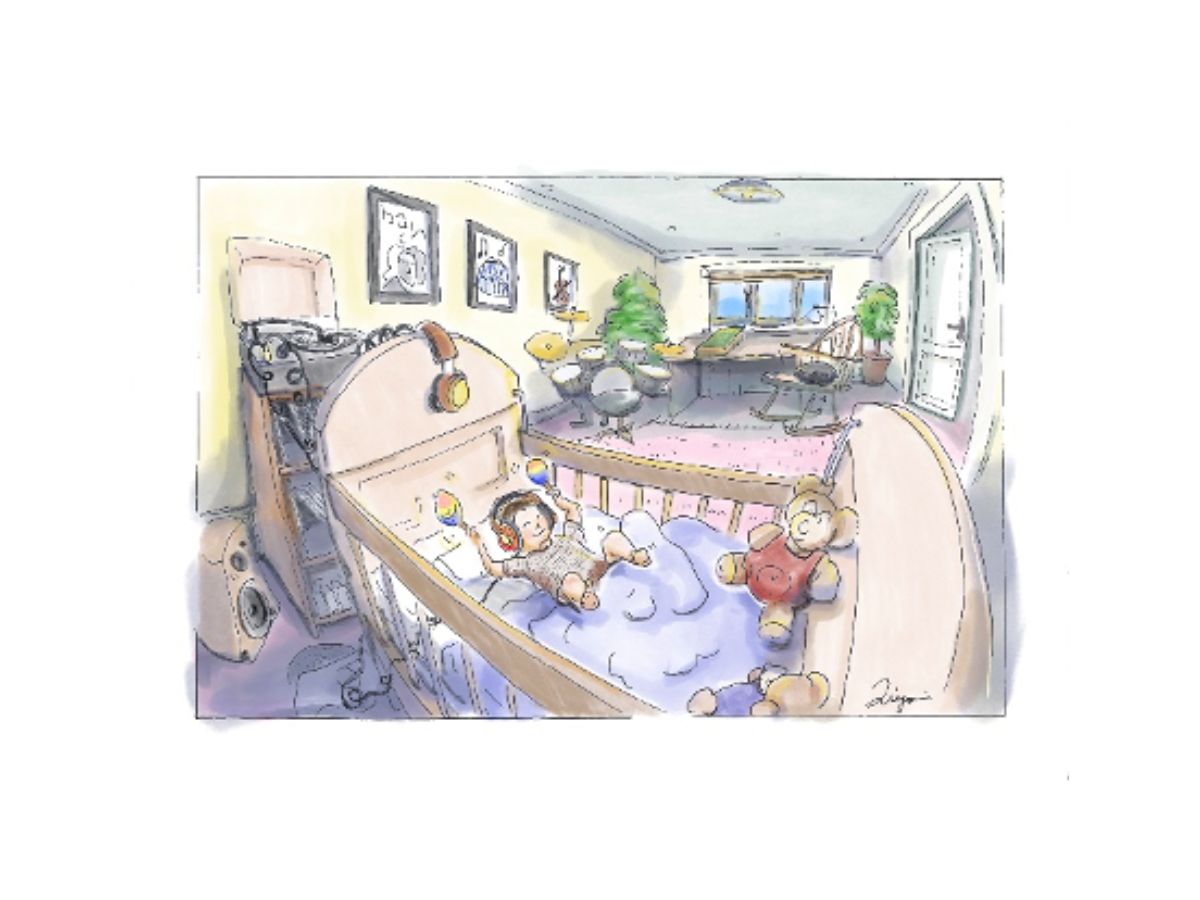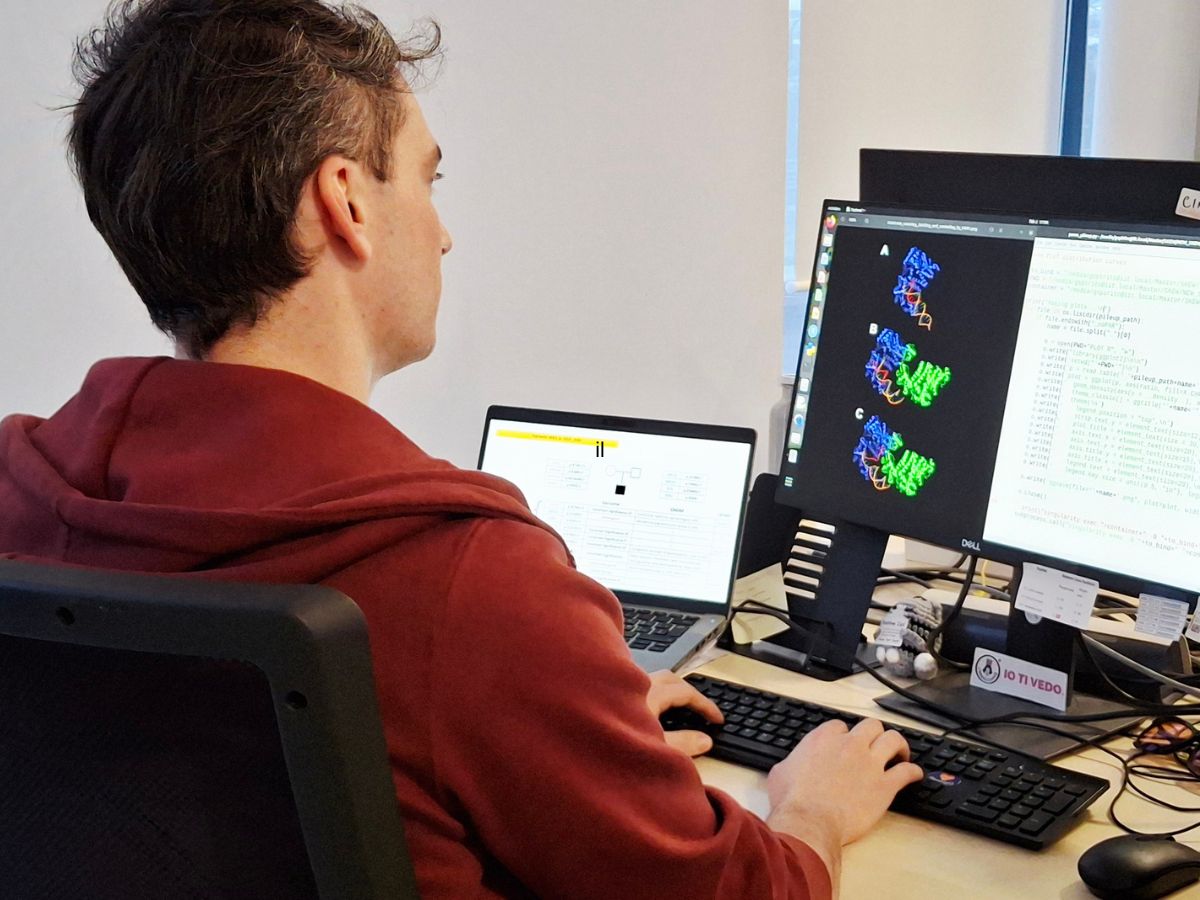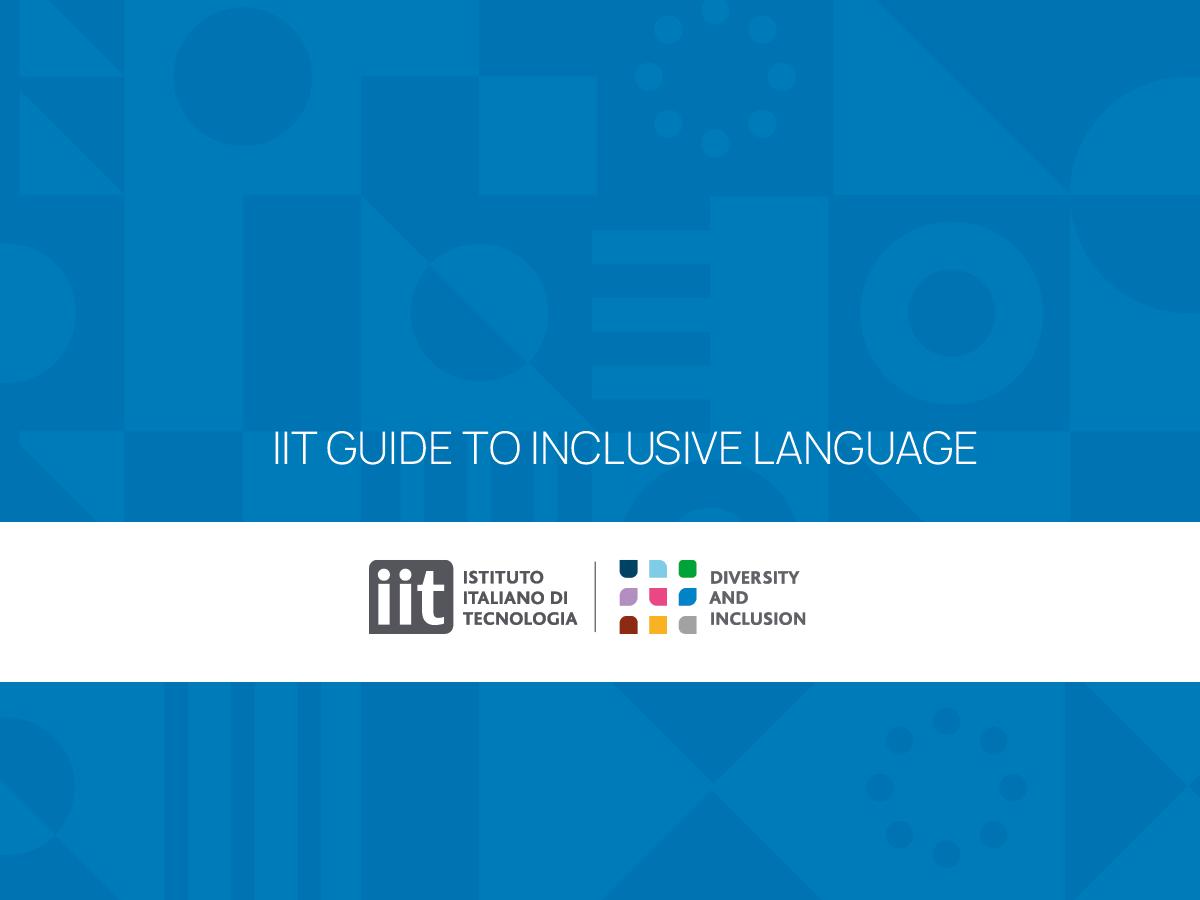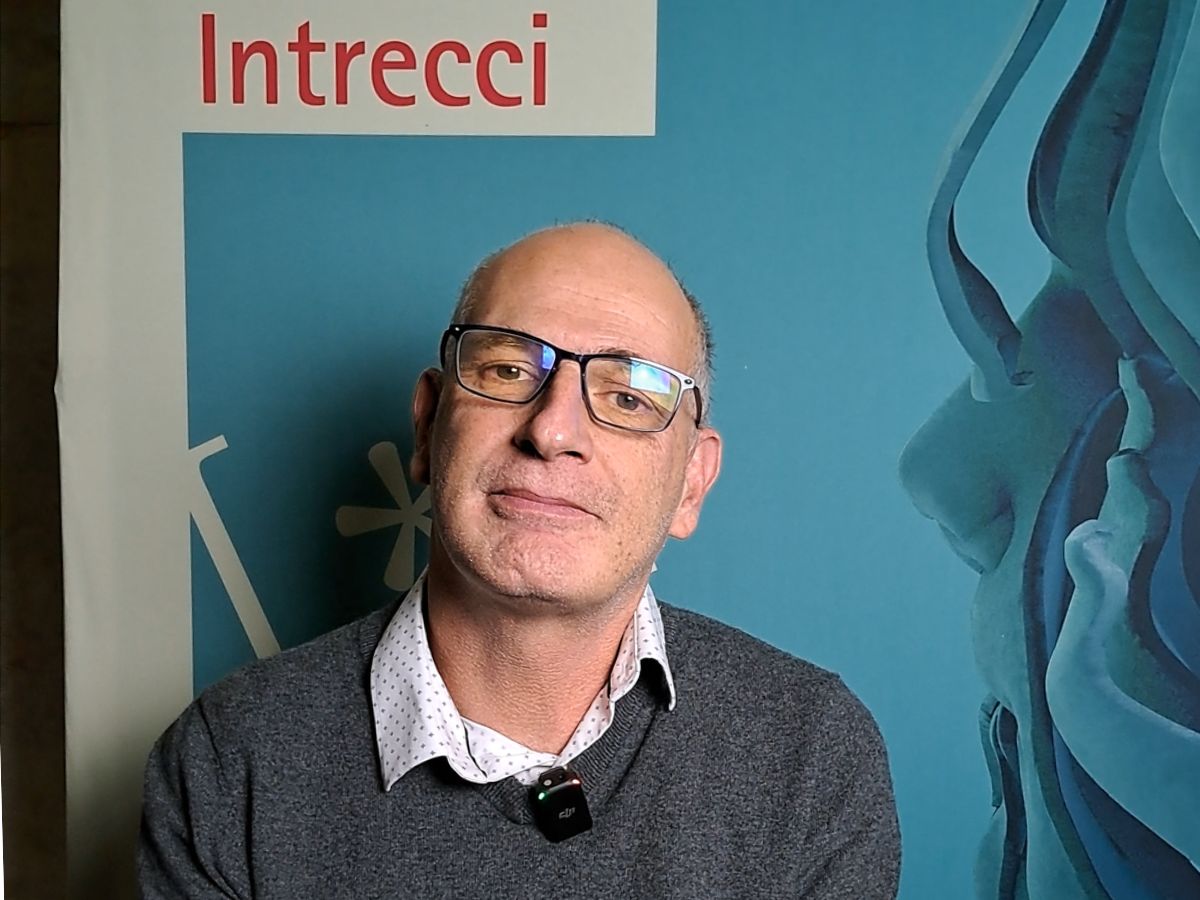Interview with Athanassia Athanassiou, PI of the IIT Smart Materials Research Line
Athanassia Athanassiou, known to all as Nassia, is one of the first female researchers to become part of IIT in Genoa. Can you tell us what the Foundation was like in its early days?
I arrived from Lecce with my entire group, which was studying smart materials, in 2012; I had already been working with these people for two years in the Apulian city and when the opportunity arose to come to Genoa to begin an even more important challenge than the one we were already tackling, I accepted it with a group of colleagues, there were six of us and today we number almost sixty. At that moment I understood the indications showing that industries were interested in our work, and from the Ligurian capital we could quickly create a network of extremely important contacts. Before moving there from Lecce for good, however, I had worked on setting up the IIT laboratories in Morego, so I can say that I was involved in the Foundation’s first steps.
What was the situation with respect to your new laboratories at IIT?
There was nothing and we had to set up from scratch. While this condition caused some concern, it also offered the opportunity to build the labs of my dreams and thus begin an exciting journey. I have fond memories of that period when, in addition to perfecting technological equipment, I was involved in the selection of the people who would come to work with us. At last I could live in the international atmosphere of the organisational process that we were implementing. The most widely-used language was English, an important feature when you want to involve researchers with supranational experience. In my past as a researcher in Italy, it had been difficult to communicate because of language problems. In Italy’s larger research centres, the language used was Italian, and I, arriving originally from Greece and then from the University of Manchester, had some difficulty in reading calls for tender and projects, and in conversing with colleagues in Italian, which I didn’t know well at that time. At IIT, the idea of an international research centre was taking shape, not only in terms of the use of language but also for a very open, transparent style of professional relations. A system in which everyone could have access, everyone could apply.
Once you had moved beyond the initial pioneering phase, you could concentrate on your studies. How did the area of your research change and grow?
My sphere of activity changed a lot in Genoa. Up until then, my studies were limited to composite, functionalised materials. At IIT, a new scientific horizon opened up for me, as a result of my relations with manufacturers, which enabled me to intercept real needs to which I could provide answers. A virtuous circle was created with company representatives. They would ask me questions and I would try to answer them through basic research. I and my team thus came into contact with the market, a window that obliges you to go beyond the idea of research conducted for the narrow circle of experts and scholars to make it available, instead, to a large number of people. This vision has provided remarkable support for our journey at IIT.
The connection with your work and technology transfer at IIT seem to me to be pivotal in this process, is that right?
Yes, that’s right. I can rely on a historic collaboration with colleagues in the Technology Transfer Directorate. The work with industry that has always seen TT’s commitment has taught me a lot, for example, about materials engineering; therefore not only the way in which we study them, but also how we successively develop them. The finalisation of prototypes that subsequently form the basis for industrial production is a central moment in our work, which is oriented towards technology transfer right from the intuition of a new field of action.
Among the many projects you have completed, which one is closest to your heart?
There is no specific project, but all of them represent an achievement for me, and they give me great satisfaction. I have to say that the most recent projects are the ones that I find most exciting because they represent a new challenge, something that is always electrifying, and, in the case of new materials, it also provides the opportunity to tackle issues that are fundamental to our shared coexistence. The work on materials in recent years has shown me without a shadow of doubt how harmful the idea of disposability has been, and still is, for that vast mass of substances, products and devices that are inseparable companions of our existence. At the end of their life, all the fruits of nature decompose and take multiple forms, so they can help us in different ways. Nature’s circular process must also be applied to the materials that man has developed. In our narrow-mindedness, we have not realised until today how dramatically palpable the signs of pollution are. This is why the materials we make, from the simplest to the most complex, must also, at the end of their life, be reused or dismantled in order to create new products and in any case be reinserted into the market. This is why, over the last decade, I have been working a lot on both advanced research and sustainable intelligent materials. These are the projects I feel most strongly about. For example, we now have an important programme under way with Poligrafico dello Stato to make all the security documents of this institution in materials that can be compostable at the end of their use. These are very important documents that contain sensitive information that cannot, at the end of their life, end up in landfills.
Among the many concerns we have regarding the environment, the state of the sea is one of the most prominent. You and your team of researchers have identified technology that can reduce water pollution. How are these activities progressing?
We have several activities currently in progress to reduce water pollution. Some of these concern the identification and disposal of hydrocarbons and heavy materials, studies on the transformation of salt water into drinking water, and then research work on marine fauna, in order to offer sustainable solutions for the improvement of their life in the sea. We have not yet obtained large-scale industrial developments from all this work but, for example, in the industry that purifies process water by removing pollutants, the systems that we have created possess practical applications. Studies to reduce pollution of the seas with the identification of new cutting-edge technology to improve water quality are a strategic goal in our research. Moreover, we must not miss the NRRP (National Recovery and Resilience Plan) funds that offer us a great opportunity to finance these studies. I hope that over the next five years, with my researchers, it will be possible to offer new technological directions to reduce pollution of the seas.
Considering these prospects as well, what will be the future of your work and also that of IIT, in terms of the crossover nature of your research in the Foundation’s development processes? Beyond that, an awareness of the environmental problem certainly involves politics as well as science. What is your opinion on this?
I think that we researchers have to change our usual mindset in this area, in which our operations are separated from the political arena. In the case of global pollution, in addition to other themes, if research can produce sensible proposals and solutions, politics will adopt them. If the world of politics is left on its own to propose interventions based only on the intensification of rules, which are often unrealistic, we will create further delays and damage to measures that are absolutely urgent. If science does not interact with politics, there is a risk that the latter will take impracticable paths. An example of this is the support for the spread of electric cars, a decision that is not based on a realistic assessment of the sources of supply and, also in this case, does not give due consideration to the problem of disposing of the source of energy, the batteries. In this instance, first of all, research should create batteries that are sustainable in terms of production and disposal, and then politics should launch the campaign for the electric car. This is just one example, perhaps the most striking. That’s why I don’t think you can describe the global environmental problem as a political question. It is an issue for which research must play the leading role.
It is no coincidence that with Giorgio Metta and a group of forty Principal Investigators, we are working assiduously on the theme of research built on sustainability that will give rise to practical, simple but vital options for our future and that of the planet.
Nassia, your commitment and that of the IIT is relevant not only for the Institute but also for the positive impact it will have on our future. Will we succeed?
Yes, I am sure we will, provided that all of us, including young researchers, undertake this activity thinking globally and considering ourselves involved in the challenge of improving the quality of our planet. Research as an opportunity for personal curiosity is an outdated vision today, and it should be a commitment oriented towards the development of the common good.






